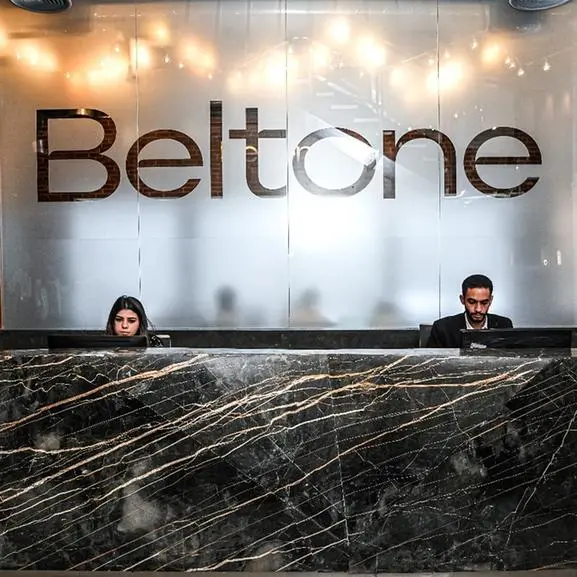PHOTO
While the coronavirus pandemic is having detrimental effects on the real estate sector across the world, Chinese buyers continue to search the world for good deals although overall deal closings fell during the first quarter of 2020.
Traditionally, the top five outbound destinations for Chinese investors have been the US, the UK, Hong Kong, Australia and Germany, according to JLL's outbound investment data from 2007 to 2019. However, first quarter data ranked Hong Kong, Poland, the US, Germany, and Serbia as the top five destinations based on investment volume.
"Hong Kong remains as the first place with two development site transactions purchased by mainland developers that took up 58 percent of total investment volume," said Darren Xia, Head of International Capital Coverage at JLL North Asia.
He added that the ranking wasn't quite 100 percent as the transaction volumes overall were limited in the first quarter and some deal closings were delayed due to COVID-19.
For most of the Chinese outbound investors, Xia said their general investment mindset is "wait and see". "They are less likely to make immediate investment decisions, but they are closely monitoring the global market and will be the first mover once the market is recovered."
Chinese overseas investors have been quiet after the Chinese government imposed capital controls, said Leo Chung, Associate Director, Research, Asia Pacific CBRE.
"Major gateway markets continue to be the major focus," he said, noting that the US, the UK, Hong Kong SAR and Australia had been the focus markets.
However, the top five markets for which the Chinese property portal Juwai.com received most enquiries in the first quarter are Thailand, Australia, the US, Canada, and the UK.
"These are the markets with the most total Chinese buyer enquiry, not necessarily those with the highest rates of growth," said Georg Chmiel, Executive Chairman, Juwai IQI.
Describing 2020 as "an unusual year," he continued: "Because the forecast is so uncertain and the coronavirus could yet have unforeseen impacts in the months to come, there could be further changes in Chinese buyer demand as the year progresses."
Commercial focus
Within the development site category, except for Hong Kong residential site, JLL data shows the remaining sites are all future developments of logistics, manufacturing and industrial business parks. Together with 20 percent of direct acquisition of industrial asset, the total percentage of industrial/logistics is over 30 percent.
"As logistics sector is expected to be relatively resilient compared with other sectors during COVID-19, there is now growing interest of outbound investors in this sector," said JLL's Xia.
Justin Eng, Associate Director at Knight Frank Asia Pacific, noted that based on the transaction volume compiled by Real Capital Analytics, the preference seemed to be for office, industrial, retail, hotel and residential assets, in that order.
Whereas, Juwai.com data gathered from industry and governmental sources reveals that 40 percent of Chinese overseas real estate investment was dedicated to commercial property and 60 percent to residential real estate. "That includes all classes of acquirers, whether corporate, state-owned, or private," said Chmiel.
CBRE's Chung noted that senior housing has become a focus area for Chinese investors.
BRI and property investments
JLL's Xia pointed out that some Belt and Road Initiative countries such as Poland and Serbia made it on the top five list for the first time, with one transaction in each country, accounting for 23 percent of the total outbound investment in the first quarter.
The two transactions were CGL Investment's purchase of distribution park portfolio in Poland and Changzhou Xingyu Automotive Lighting System's purchase of a factory site in Serbia.
"We have seen the increased interests in BRI partners countries during recent years, but rather than purely investing in real estate, the BRI investors are normally more interested in large scale development of infrastructure," he said.
Eng of Knight Frank added: "Real estate would only come later when the infrastructure is completed."
However, BRI involvement is regarded as a positive signal by Chinese property investors. "Commercial ties, expectations for economic growth, and positive political signals all reassure Chinese investors that purchasing property in BRI countries is a relatively safe investment," said Chmiel of Juwai IQI.
He said they have seen such an impact in the Philippines, Cambodia, Malaysia, and Greece, among other countries.
"BRI involvement alone will not lead to a Chinese investment boom, but it can be an accelerant when other factors are also in place," said Chmiel.
Second quarter outlook
As the global COVID-19 outbreak gets prolonged, industry experts anticipate outbound investment activity from China to be disrupted due to travel bans, quarantines and closures.
"The outlook for second quarter is still cautious as many investments can't go ahead; Chinese investors can't visit the countries to do deals due to international travel restrictions," said Eng of Knight Frank Asia Pacific.
JLL's Xia said some transactions which were expected to be closed in first and second quarters would be delayed or even disrupted due to the current uncertainty but said the impact will be a temporary exogenous shock on outbound investments; "it will quickly rebound once the pandemic is largely controlled," he said..
Chmiel is of the view that COVID-19 is reaffirming the traditional Chinese focus on safety and well-being as they choose overseas markets to acquire a property.
"Much of Chinese property acquisition is driven less by a desire to obtain financial gains than to obtain lifestyle benefits and to hedge against financial risk at home in China."
He said Australia, New Zealand, Korea, and Germany are countries that look even better in light of the pandemic than they did in 2019. "Of course, this can change as the Coronavirus is far from defeated," said Chmiel.
UAE weathers COVID-19 storm
While the UAE property market has also been impacted by COVID-19, Chinese buyers continue to remain in the hunt for good deals in the emirate.
Simon Townsend, head of Strategic Advisory at CBRE MENAT said demand from China-backed investors, both direct and indirect, continues.
"We see continuing interest particularly in the debt restructuring or last-mile finance sectors," he said, adding that expansion plans of China-based retailers also affirm their confidence in the region's potential.
Jonathan Hood, Head of Residential Valuations at Colliers International MENA, said the feedback from real estate brokers indicated that the timeline to find the property and close the deal is now extended, with buyers preferring to wait until the last quarter before committing. They also expect prices to decline further, he noted.
Colliers research shows that residential property has been a popular asset class amongst Chinese investors due to the increase in Chinese businesses setting up permanent offices in the UAE, particularly in Dubai.
Juwai.com's analysis showed continued interest from Chinese and other Asian buyers for Dubai property but deal closings were harder at the moment, admitted Chmiel.
"When the lockdown and travel restrictions are lifted, we expect a mini-boom in transactions that have been held up," he said, adding that the UAE has, so far, managed the pandemic well and looks even more appealing to foreign buyers.
"It's too soon to know for sure, but the UAE could look better to buyers from all over Asia after the pandemic," he said,
While it is too early to quantify the impact of COVID-19 on Chinese investment in the UAE residential market, Hood said the outcome would be dependent upon the strength of businesses in the emirate and the security of jobs going forward.
(Reporting by Syed Ameen Kader; Editing by Anoop Menon)
(anoop.menon@refinitiv.com)
#Real estate #Coronavirus #Belt and Road Initiative
Disclaimer: This article is provided for informational purposes only. The content does not provide tax, legal or investment advice or opinion regarding the suitability, value or profitability of any particular security, portfolio or investment strategy. Read our full disclaimer policy here.
© ZAWYA 2020





















